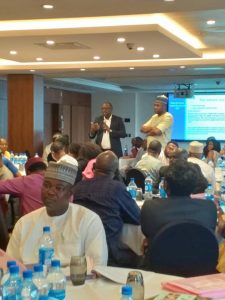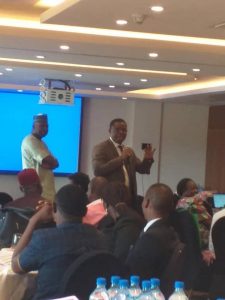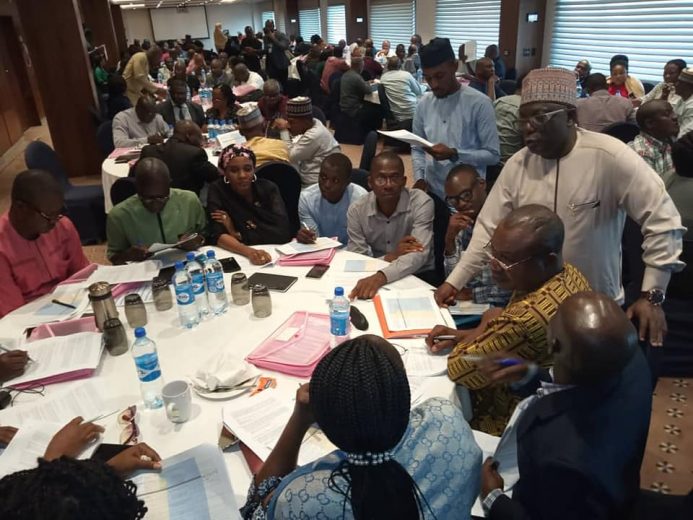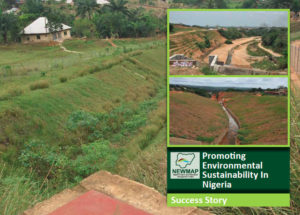Dateline 17 – 20 June 2019: A 4 day Gender Based Violence (GBV) retrofitting workshop for the Nigeria Erosion and Watershed Management Project commenced with all the 21 partner states in attendance. The NEWMAP’s GBV clinic and retrofitting was initially scheduled for May 27 – 31. Giving the sheer volume of expected participation from NEWMAP, the GBV workshop was moved to Abuja as a central location to accommodate all Participants.
The World Bank Group considers that no Country, community, or economy can achieve its potential or meet the challenges of the 21st century without the full and equal participation of women and men, girls and boys. Therefore it is committed to closing the gaps between males and females globally for lasting impact in tackling poverty and driving sustainable economic growth that benefits all.
The World Bank today released an Action Plan outlining administrative and operational measures being undertaken to help prevent and respond appropriately to incidences of sexual exploitation and abuse, as well as other forms of gender-based violence (GBV) in World Bank supported projects. This is because 35 % of women worldwide have experienced either non-partner sexual violence or physical and /or sexual intimate partner violence (IPV) WHO 2013. It is also agreed that projects with huge civil works can increase the risk of GBV in both public and private spaces by a range of perpetrators In a number of the following ways : a) Projects with a large influx of workers may increase the demand for sex work or even increase the demand for trafficking of women for the purposes of sex work; b) such big projects creates shifts in the power dynamics between community members and within households; c)when land redistribution occurs; d)when there are little job opportunities compare to the numbers of those seeking the opportunities.
The World Bank Action Plan addresses the recommendations of the Global GBV Task Force released in August to strengthen the World Bank’s capacity to identify, prevent and mitigate against GBV in World Bank supported projects.
In its report, the GBV Task Force underlined that preventing sexual exploitation and abuse (SEA) requires collaboration and action across different groups including contractors, government partners and communities, as well as the World Bank. The World Bank committed to implementing these recommendations, and to taking the necessary measures to help prevent and respond appropriately to incidences of SEA, as well as other forms of GBV.
“Gender-based violence is an attack on the security, voice, and well-being of individuals, and of whole communities,” World Bank Group President Jim Yong Kim said. “It also threatens our efforts to end poverty and boost shared prosperity. We are grateful to the Global GBV Task Force for its recommendations which, together with this action plan, will help identify and address GBV in our development operations. It will make our projects better and help us walk the talk to prevent and address incidents of GBV.”
The Action Plan is derived from a review of every recommendation presented in the Task Force Report, and consolidates and groups the recommendations across key institutional areas that reference the priorities of the Task Force Report. A focus on recommendations to ensure the safety and security of women, children and other vulnerable groups, and to ensure regular and dynamic engagement with community partners will be integrated into respective actions outlined in the Action Plan.
The primary actions are to:
- Develop a methodology for, and a roster of technical specialists who can provide the assessment of risk of SEA/GBV in projects the World Bank supports
- Build and improve staff and client capacity to address risks of SEA/GBV through the development of guidance, training, and continuous learning activities and materials
- Develop a clear internal Reporting and Response Protocol to guide World Bank staff in case of incidents
- Strengthen operational processes for projects deemed High-Risk of SEA/GBV, including mandating Codes of Conduct for civil works contractors with prohibitions against SEA/GBV – specifically against sexual activity with anyone under the age of 18, strengthening consultation considerations and recommendations for grievance redress mechanisms, Supervisory Engineers and Third Party Monitors
- Strengthen awareness around GBV issues in development projects among staff and client partners
- Ensure budget is available to realize the Task Force recommendations, including dedicated one-time surge funds to cover training and knowledge development costs, and through the establishment of a two-year GBV Prevention and Mitigation Fund to allocate additional resources to projects at High Risk of SEA/GBV to cover additional budget requirements.
Fundamental to the Action Plan is the continuing emphasis on the guiding principles of the Task Force, including that all actions are ultimately people-centered and enable the safety, dignity and agency of those affected by World Bank-supported operations.
The Global GBV Task Force was created in October, 2016 as part of the Bank’s commitment to learn from the failings of the Uganda Transport Sector Development Project, which involved serious allegations of sexual misconduct and abuse by contractors. The work of the Task Force was informed by related Inspection Panel findings and the management response, the findings of a management review of Lessons Learned from the Uganda case, as well as by the immediate measures taken by management to integrate these findings into the Bank’s 2015 Procurement Framework, current social safeguard practices, the new Environmental and Social Framework (ESF) which was approved in 2016 and which will be implemented by 2018, and the Labor Influx Guidance Note.




